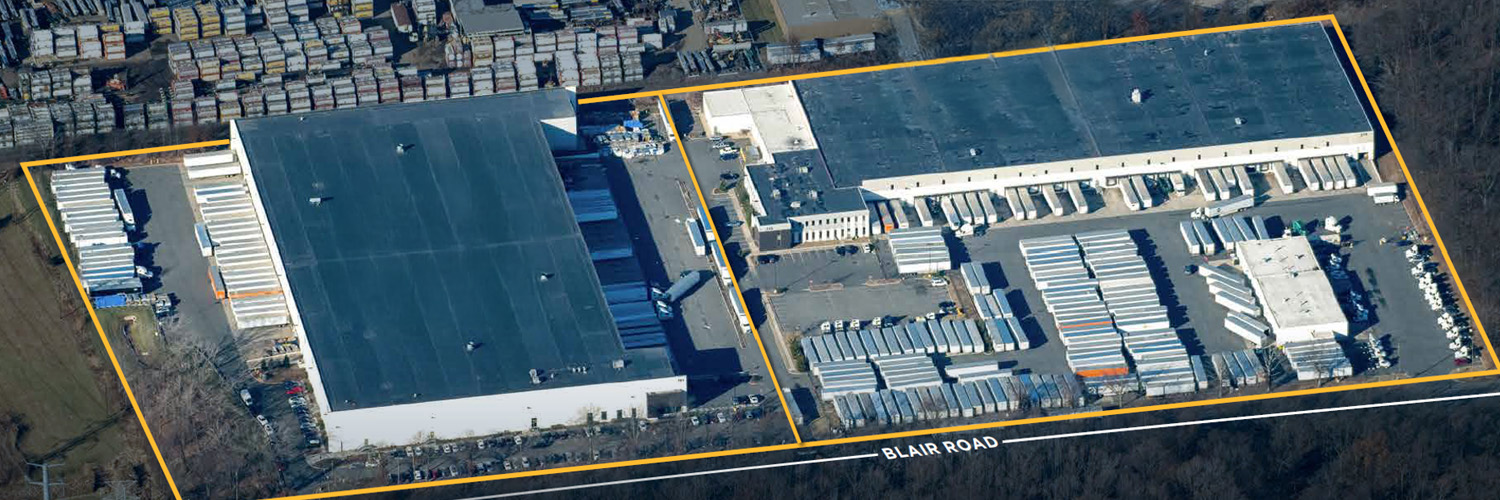Press

CenterPoint Properties Invests in Two Class A Facilities in Northern New Jersey
Search Site
Back to Menu

“We could see that rapidly the landscape was changing, so we got to Los Angeles and began investing, and now we’re one of the bigger investors there. We went to Oakland near the port started investing there. Same thing in Seattle, same thing in Houston, same thing in Miami, Savannah, Charleston, New Jersey, and we still have a strong presence in Chicago, particularly around the intermodals.”
- Jim Clewlow, Chief Investment Officer
Read what Jim had to say about today’s demand drivers for industrial space and how the evolution of CenterPoint’s investment strategy over the years has helped the company capitalize on the current bull market for industrial real estate.
If there has been one bright side for the commercial real estate industry during the coronavirus pandemic, it has been industrial. The demand for industrial spaces has soared over the last several months, thanks in large part to the sharp rise in e-commerce activity. E-commerce sales reached $222B in Q2 2021 or 13.3% of all retail sales.
This — combined with booms in manufacturing, cold storage, automobiles, tires and parts, materials/construction and medical industries — is all leading to a dramatic demand for industrial spaces that is expected to continue through at least 2026.
“I think no one would argue with the fact that e-commerce has changed the way people buy, and as a result, people are no longer visiting stores to buy necessarily, at least not as much as they used to, and they’re doing it via their computer or their phone,” said Jim Clewlow, chief investment officer at CenterPoint Properties, an industrial real estate firm. ”That’s having a huge impact on leasing demand in both the retail and the industrial market.”
Clewlow has been working in commercial real estate since 1985. Back then, he was with CBRE and focused on the industrial, multifamily and retail office markets. In 1987, he shifted gears and became an industrial broker and has been working in the sector ever since. At CenterPoint, he focused on acquisitions and has spent the last several years helping the company invest, acquire and develop industrial assets around port infrastructure in densely populated cities.
“CenterPoint saw every industrial investment in Chicago and by virtue of just having the phone at my desk,” Clewlow said. “I had a great vista. I went from being a very active participant to being at one of the bigger market participants because of CenterPoint’s position in the industry.”
In 2006, CenterPoint made the decision to build two massive intermodals for BNSF and UP, which are essentially large freight yards, Clewlow said. Through these intermodals, the company discovered that global containerization, or the movement of goods by containers, was not just growing but growing at a highly accelerated clip. Companies were coming to CenterPoint and telling it that the infrastructure they had was just not good enough to meet the growing demand for containerized goods.
“We could see that rapidly the landscape was changing, so we got to Los Angeles and began investing, and now we’re one of the bigger investors there,” Clewlow said. “We went to Oakland near the port, started investing there. Same thing in Seattle, same thing in Houston, same thing in Miami, Savannah, Charleston, New Jersey, and we still have a strong presence in Chicago, particularly around those intermodals.”
In its CenterPoint Intermodal Center in Joliet/Elwood, Illinois, 40 miles southwest of Chicago, the company has leased more than 3.5 MSF of new construction since summer ’20. It has two more 1 MSF specs in progress at the park, which it expects to pre-lease as well. User demand has grown so steadily over the past decade, Clewlow said, the company kicked off a major infrastructure project this year in a joint venture with United Bridge Partners to build a new 1.5-mile road into the park, including a 0.4-mile-long bridge.
The infrastructure project was years in the making for CenterPoint, which successfully created a coalition including the Illinois Department of Transportation and the city of Joliet to deliver a host of other improvements to the area to serve the park’s tenants while also alleviating truck traffic in surrounding communities.
CenterPoint has certainly capitalized on the industrial boom. Since the start of 2020, it has spent more than $2B to acquire 64 buildings totaling more than 12 MSF and nearly 900 acres in the country’s most competitive infill markets: New York/New Jersey, Los Angeles, Houston, South Florida, Oakland and Seattle.
PJ Charlton, senior vice president of investments for CenterPoint’s East Region, said in a statement that despite how competitive the industrial environment has become, CenterPoint has found opportunities to invest capital in its favorite markets. This includes buying one-off Class-B assets that require repositioning, making large Class-A transactions, or working with a variety of other transaction types, including development.
Clewlow said that while it has been clear to the company for more than a decade that consumer habits were shifting, no one knew what the full impact of e-commerce would be or that it would grow in the dramatic way it has for the last several years. Still, he remains uncertain of how long this boom will last.
“I do a lot of reading, and I don’t think it’s altogether clear how sustainable this spike in leasing demand is,” he said. “Covid obviously had a strong impact on industrial leasing demand because people were at home ordering things. Now, the question is, ‘Did it accelerate that transformation?’ Basically, did five years of growth occur in one year? It’s possible. We don’t really know.”
Regardless, Clewlow doesn’t believe that consumer habits are going to shift back to brick-and-mortar retail-only anytime soon, he said, it’s just a matter of what the rate of growth will be. Right now, he said, e-commerce is growing at an increasing rate, and it will continue to grow over the next few years, but likely at a decreasing rate. He said the bottom line is that it will change from market to market, which is why he is glad CenterPoint has diversified into several markets.
In the end, Clewlow said, the industrial market is always evolving, even before the e-commerce boom occurred. So, Clewlow argues, the question isn’t so much how long the e-commerce growth will continue, but rather what is next.
“In 2005, when we were building a big campus for a major e-commerce company in Chicago, nobody was talking about them,” he said. “The question I leave you with is, ‘Who’s the next Amazon?’ We weren’t even talking about Amazon in 2005, and that was just 16 years ago. In 15, 16 years, who are we talking about? You know it will be somebody else. It always works that way.”
About CenterPoint Properties
CenterPoint is an industrial real estate company made up of dedicated thinkers, innovators and leaders with the creativity and know-how to tackle the industry’s toughest challenges. And it’s those kinds of problems — the delicate, the complex, the seemingly impossible — that we relish most. Because with an agile team, substantial access to capital and industry-leading expertise, those are exactly the kinds of problems we’re built to solve. For more information on CenterPoint Properties, follow us on LinkedIn. For all media inquiries, including requests for interviews with CenterPoint executives, please contact media@centerpoint.com or 630.586.8285.
For CenterPoint Investment inquiries, please contact:
Subscribe
Microsite Request